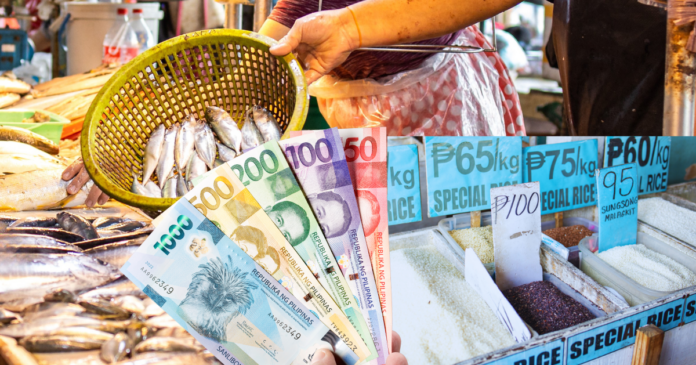Are you perplexed as to why your once-go-to snack, necessities basket, or rice bag has doubled in price in a matter of years? Or how much did services cost in the past versus now?
These are only some of the effects of inflation. While several factors defeat money’s purchasing power, inflation is almost inevitable.
𝐄𝐟𝐟𝐞𝐜𝐭𝐬 𝐨𝐟 𝐈𝐧𝐟𝐥𝐚𝐭𝐢𝐨𝐧
Like any other nation, the Philippines is one of the countries heavily hit by increasing commodity prices. Here is a rundown of its effects:
𝐄𝐜𝐨𝐧𝐨𝐦𝐢𝐜 𝐢𝐦𝐩𝐚𝐜𝐭 – The price increase already indicates the ongoing inflation plaguing the economy. But beyond these are the swelling interest rates and the weakening value of the Philippine Peso. These circumstances make borrowing more expensive and trading more luxurious for the Philippines.
𝐒𝐨𝐜𝐢𝐚𝐥 – Although individuals with savings remain vulnerable to inflation due to low savings yields, low-income and middle-class households also suffer the effects of inflation. Notwithstanding the impact of COVID-19, the increase in the cost of living in recent years revealed income inequality in the population groups. Low-income earners might be able to suffice for their family’s necessities, but may not have enough to save or invest.
𝐅𝐨𝐨𝐝 𝐚𝐧𝐝 𝐀𝐠𝐫𝐢𝐜𝐮𝐥𝐭𝐮𝐫𝐞 – An April 2024 data pointed a 0.6% increase in inflation from the once 5.7% in March 2024. This spike was due to the yearly increase in several crops such as vegetables plantains, and sea products. Lower growth rates for rice, flour, cereals and similar products have also generated these food inflations.
Inflation: The Good and the Bad
Although poverty and the inability to secure basic needs often get associated with inflation, there are a few who benefit from it. These include debtors who pay their loans with something of lesser value than the actual amount they borrowed.
Housing loans, typical borrowing schemes and other major, long-term purchases are good examples.
In contrast to the above, an economy heavily overrun by inflation comes with the risk of premature dismissals. In a slow-running economy, tenured individuals have the upper hand and are less prone to the effects of company budget cuts.
𝐈𝐬 𝐈𝐧𝐟𝐥𝐚𝐭𝐢𝐨𝐧 𝐀𝐯𝐨𝐢𝐝𝐚𝐛𝐥𝐞?
Rising prices give oppressing impressions to the general public. But can we avoid inflation?
Here are a few strategies the Philippines have implemented and can enforce to respond to inflation:
𝐑𝐚𝐢𝐬𝐢𝐧𝐠 𝐩𝐨𝐥𝐢𝐜𝐲 𝐫𝐚𝐭𝐞𝐬
Reduction of import tariffs to ease import restrictions
Enhancement of food security by strengthening agricultural and food supply sectors
Subsidies to vulnerable groups
The policy mix has helped and can help the Philippines face its uncertain future with inflation. But while there are more issues involving the Filipino economy, vigilance and steady monitoring of all the economic factors will be vital.
Combating inflation should not be a one-time move; rather, it should be a long-term huddle with a perfectly executed gameplay on the horizon.



